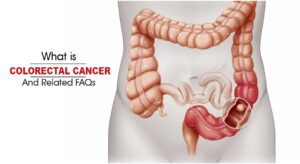Coronavirus in Cancer Patient
Information for the risk of coronavirus for cancer patients, survivors and caregivers and who’s most at risk and what you can do to stay healthy…
Not everyone will get sick. But like the flu virus, there are definitely people who are more at risk. With COVID-19, people who are older (particularly over 70) and people with underlying health conditions, such as chronic lung disease (think COPD), cardiovascular disease, diabetes, chronic kidney disease and cancer appear to be at higher risk for major complications.
Coronavirus in Cancer Patient can increase the risk. Patients with hematologic [blood] malignancies we believe will have the biggest risk, coronavirus is considered completely novel viral pandemic to the human race. Patients with blood malignancies such as non-Hodgkin lymphoma, chronic lymphocytic leukemia, acute myeloid leukemia, acute lymphoblastic leukemia and multiple myeloma are most at risk. The risk extends beyond the period of active treatment. Cases with ongoing/active chemotherapy, bone marrow transplant or associated with immune suppression and increased risk of infection.
Dr Sajjan tell people/ and specially is cancer patients to minimise their risk of exposure to COVID-19 infection by avoiding crowded places, limiting social interaction and maintaining careful hand hygiene.
Related FAQs:-
Q 1. Do I Need to Do Anything Differently as Someone Who is Being Treated or is in Remission From Cancer?
Ans. By reducing the risk of picking up infections. This includes thoroughly and regularly washing your hands, practicing good hygiene, and avoiding contact with people who are unwell. If you have recently had surgery for pancreatic cancer you may have an increased risk of infection if you are still recovering from the operation. If your spleen has been removed, your risk from the virus may be higher as the spleen is part of the immune system and helps to protect against infection
If you are worried you might have been in contact with someone with confirmed coronavirus, Contact Dr Sajjan.
Q 2. “Coronavirus in Cancer Patient is more serious situation” What Does That Mean?
Ans. You are more at getting more severe symptoms from the COVID-19 infection if you are having chemotherapy, have had chemotherapy in the last three months, or are having immunotherapy.
Q 3. What Will Happen to Active/ing Cancer Treatment? Will It be Postponed? Should Patients Still Go to Hospital Appointments?
Ans. Yes Dr Sajjan advice your oncologist will continue to provide cancer treatments as normal. In the event of any disruption, doctors will always make decisions to prioritise treatment for those most in need, and in consultation with patients. Q. What are the symptoms likely to be? Will the symptoms be different for cancer patients? A. The symptoms of coronavirus are: cough a high temperature shortness of breath But these symptoms do not necessarily mean you have the illness. The symptoms are similar to other illnesses that are much more common, such as cold and flu.
Q 4. Does Having Had Cancer Treatment in the Past (For Example, Chemotherapy or Radiotherapy) – Even If Patient is in Remission – Increase Risk If Got the Virus?
Ans. This depends on the treatment you have had. You are more at risk of becoming seriously ill if you get the COVID-19 infection if you are having chemotherapy at the moment, or have had chemotherapy in the last three months. You may also be more at risk if you are taking part in an immunotherapy clinical trial. Speak to your medical oncologist Dr Sajjan if you are worried about how coronavirus might affect you if you have had cancer treatment in the past.
I have cancer and have symptoms of coronavirus
The symptoms of coronavirus include:
- a high temperature of above 37.8C and, or
- a new continuous cough – this means coughing a lot for more than an hour, or 3 or more coughing episodes in 24 hours (if you usually have a cough, it may be worse than usual)
- a loss of, or change in, your normal sense of taste or smell (you can’t smell or taste anything, or things smell or taste different to normal)
If you have symptoms of coronavirus or you feel unwell, and you are having cancer treatment or a cancer that affects your immune system, you should first contact:
- your chemotherapy helpline
- the Acute Oncology Service at your hospital




